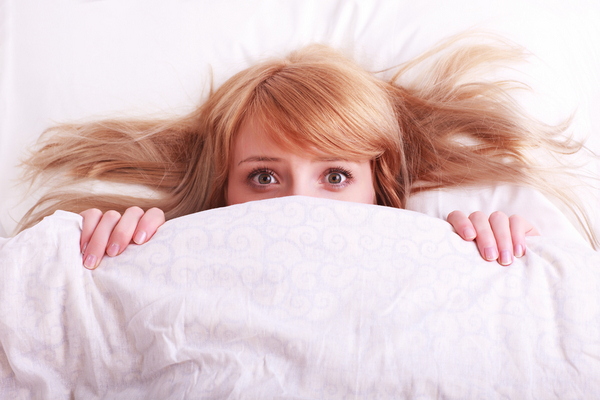Can't Sleep? Could Be a Fear of the Dark

For some people with insomnia, the real reason they can't fall asleep may be a fear of the dark, a small new study suggests.
Researchers looked at 93 undergraduate students, who identified themselves as either good sleepers or poor sleepers. Experiments in a sleep lab suggested that 46 percent of the poor sleepers were afraid of the dark, whereas 26 percent of the good sleepers seemed to have this fear.
"People often think it’s a juvenile fear, and adults don’t usually want to admit that they’re even afraid of the dark," said study researcher Colleen Carney, a sleep psychologist at Ryerson University in Toronto. "But some people with insomnia sleep with the light and TV on."
The findings suggest a new way to help people with insomnia, Carney said.
"We can treat this fear,” she said. “We can get people accustomed to the dark so they won't have that added anxiety that contributes to their insomnia."
The study was presented today (June 11) at a conference of sleep researchers in Boston.
Who's afraid of the dark?
Sign up for the Live Science daily newsletter now
Get the world’s most fascinating discoveries delivered straight to your inbox.
About 60 million people in the U.S. experience insomnia each year, either frequently or for weeks at a time, according to the National Institutes of Neurological Disorders and Stroke.
Insomnia can last several weeks and can be a sign of other health issues, including sleep apnea, restless leg syndrome, substance abuse or mental disorders.
To examine whether study participants were afraid of the dark, Carney and colleagues placed them in a laboratory "bedroom," wearing headphones. The researchers played short bursts of white noise into the headphones and watched how often each sleeper blinked. By observing eye blinks, researchers could determine the participants' level of anxiety.
When the bedroom was lighted, the good and poor sleepers responded the same. But with the lights off, poor sleepers were more startled by the sound, blinking more rapidly.
Moreover, the poor sleepers became increasingly afraid of the dark as the night went on, while the good sleepers became more comfortable.
“Everyone will get startled in the dark,” Carney said. “That’s common, because we’re not night creatures.” But good sleepers don’t startle as much, she said. “They get used to the sound over time and are startled less and less.”
So what do you do if you’re afraid of the dark and can’t sleep? Carney recommended getting treatment for the fear.
Fear and sleeping
Dr. Jack Edinger, a sleep specialist at National Jewish Health hospital in Denver, said he is a little skeptical about the study’s findings.
"We can’t necessarily leap to the conclusion that treatment for fear of darkness is linked with insomnia,” said Edinger, who was not involved in the research. “Poor sleepers could have something more than insomnia.”
He noted that study researchers used only a questionnaire to identify good and poor sleepers, rather than performing a clinical examination to more accurately determine whether participants had insomnia.
But he said the study raised interesting questions.
"This study opens up another avenue of scrutiny in the insomnia world,” Edinger said. “We haven’t been able to cure everyone because we don’t have a full understanding of it."
Pass it on: Another reason why you can’t fall asleep may be a fear of the dark.
This story was provided by MyHealthNewsDaily, a sister site to LiveScience. Follow MyHealthNewsDaily on Twitter @MyHealth_MHND. Find us on Facebook.









